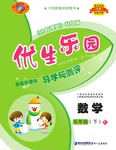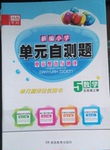阅读理解。
I was a freshman in college when I met the Whites. They were completely different from my own family,
yet I felt at home with them immediately. Jane White and I became friends at school, and her family welcomed
me like a long-lost cousin.
In my family, it was always important to place blame when anything bad happened.
"Who did this?" my mother would scream about a dirty kitchen.
"This is all your fault, Katharine," my father would insist when the cat got out or the dishwasher broke.
From the time we were little, my sister, brothers and I told on each other. We set a place for blame at the
dinner table.
But the Whites didn't worry about who had done what. They picked up the pieces and moved on with their
lives. The beauty of this was driven home to me the summer Jane died.
In July, the White sisters and I decided to take a car trip from their home in Florida to New York. The two
older sisters, Sarah and Jane, were college students, and the youngest, Amy, had recently turned sixteen. Proud
of having a new driver's license (驾照), Amy was excited about practicing her driving on the trip. She showed
off her license to everyone she met.
The big sisters shared the driving of Sarah's new car during the first part of the trip, but when they reached
less crowded areas, they let Amy take over. Somewhere in South Carolina, we pulled off the highway to eat.
After lunch, Amy got behind the wheel. She came to a crossroads with a stop sign. Whether she was nervous
or just didn't see the sign no one would ever know, but Amy continued into the crossroads without stopping.
The driver of a large truck, unable to stop in time, ran into our car.
Jane was killed immediately.
I was slightly injured. The most difficult thing that I've ever done was to call the Whites to tell them about
the accident and that Jane had died. Painful as it was for me to lose a good friend, I knew that it was far worse
for them to lose a child.
When Mr. and Mrs. White arrived at the hospital, they found their two daughters sharing a room. Sarah had
a few cuts on the head; Amy's leg was broken. They hugged us all and cried tears of sadness and of joy at
seeing their daughters. They wiped away the girls' tears and made a few jokes at Amy as she learned to use her
crutches (拐杖).
To both of their daughters, and especially to Amy, over and over they simply said, "We're so glad that you're
alive."
I was astonished. No blame. No accusations.
Later, I asked the Whites why they never talked about the fact that Amy was driving and had run a stop
sign.
Mrs. White said, "Jane's gone, and we miss her terribly. Nothing we say or do will ever bring her back.
But Amy has her whole life ahead of her. How can she lead a full and happy life if she feels we blame her for
her sister's death?"
They were right. Amy graduated from the University of California and got married several years ago. She
works as a teacher of learning-disabled students. She's also a mother of two little girls of her own, the oldest
named Jane.
1. The author of the passage is _____.
A. Mrs. White's niece
B. Jane's school friend
C. The Whites' cousin
D. Sarah's friend from college
2. How did the accident occur?
A. Amy didn't stop at a crossroads and a truck hit their car.
B. Amy didn't know what to do when she saw the stop sign.
C. Amy didn't slow down so their car ran into a truck.
D. Amy didn't get off the highway at a crossroads.
3. The Whites did not blame Amy for Jane's death because _____.
A. they didn't want Amy to feel ashamed and sorry for the rest of her life
B. Amy was badly injured herself and they didn't want to add to her pain
C. they didn't want to blame their children in front of others
D. Amy was their youngest daughter and they loved her best
4. From the passage we can learn that _____.
A. Amy has never recovered from the shock
B. Amy changed her job after the accident
C. Amy lost her memory after the accident
D. Amy has lived quite a normal life

 优生乐园系列答案
优生乐园系列答案 新编小学单元自测题系列答案
新编小学单元自测题系列答案